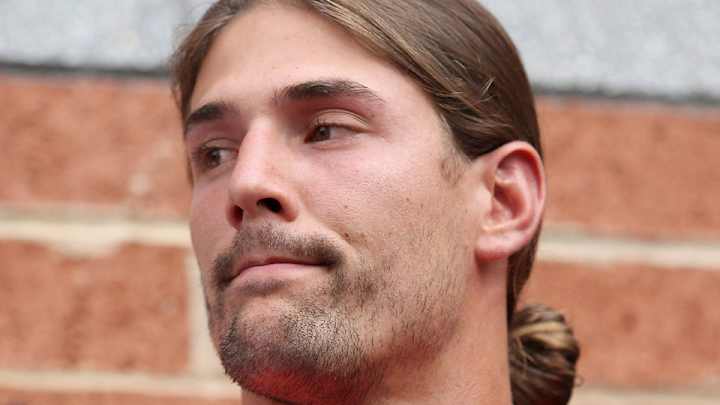Exploring the Cooper Controversy

This week’s mailbag has brought a flood of questions about Riley Cooper’s racial slur. What's his future, or lack thereof, with the Eagles? How does a front office handle something like this? And where does a team go from here? I answer those, and a few more questions beyond the scope of the embattled wideout.
If you got that call about Cooper and the video, what would you have done?
My first reaction would have been to curse loudly. Following that, I would gather the key internal parties—the owner, president, general manager, coach and public relations director—and formulate action steps, with a caution not to act impulsively in the heat of the moment. Externally, the key person to bring in is the player's agent. I spent many hours cultivating agent relationships, so there was trust in a situation like this to work together.
Who is Cooper's agent?
Joel Segal, who also represents Cooper's teammates Michael Vick and DeSean Jackson. It has been an interesting week for Segal, who dealt with Percy Harvin’s hip surgery, Tarell Brown’s missed $2 million (he’s Brown's new agent), Chris Culliver’s torn ACL and Cooper’s transgression.
Do you think the Eagles will release Cooper?
I do not. If they were going to, they would have done so by now rather than fine him and send him to sensitivity training, especially since Cooper returned to the team Tuesday. Here is the reality about the NFL: all players are not created equal. If Cooper were a bottom-of-the-roster player and had done the same thing, he would be gone. But the Eagles need Cooper on the field. He’ll be there.
Inside Chip Kelly's thinking on the Riley Cooper situation
What about all the resentment toward him in the locker room?
This is a factor; Cooper was toxic and had to be removed from the scene for a while. He is now back, and in time the toxicity will dissipate. Time has a way of healing wounds, and I sense in a month when the season starts, things will be closer to normal than we think, especially when game action arrives.
Could the Eagles have faced a grievance by the NFLPA if they cut Cooper?
Teams have to check a box on the termination form sent to the NFL declaring their reason for releasing a player. The listed choices are 1) cap needs 2) injury or 3) skill deficiencies. Cooper was projected to start and has a minimum salary. Had he been released, the union and Segal may well have had a reaction.
[si_video id="video_EE0EDA71-C136-EFB5-44CE-551EE8928E10"]
* * *
And for a couple non-Cooper questions ...
Vince Young (Eric Gay/AP)

Weren’t the Packers, who just signed Vince Young, interested in drafting him?
Yes, we were. Ted Thompson came back from Young’s workout at Texas raving (by Ted's standard, anyway) about him. The better question is, would we have drafted Young after taking Aaron Rodgers the year before? Despite picking as high as we ever had in my nine years there—fifth—we didn't have to make that choice. Young went to the Titans with the third pick, and we took A.J. Hawk two spots later. A lot has changed in seven years, but I’m sure Ted still has a soft spot for Young, which is why I give him a decent chance of making the team.
How much will Young earn?
Young signed a one-year contract for the minimum salary. Thus, he'll only make training camp per diems—$1,700 per week—until the final cut down date. If he is on the roster for the opening game, his salary will become guaranteed as a vested veteran and he'll be entitled to full termination pay if released after that.
With the Vikings ownership now in the news for a fraud issue, what is going on with owners and what is the vetting process by the NFL like?
We've had a summer of players behaving badly; now it seems to be the owners’ turn. Whether it is the Wilfs in Minnesota or Jimmy Haslam in Cleveland, these allegations do not reflect well on the league. I will say this: the vetting process by the NFL is comprehensive and broad, with many questions asked about finances and background issues. In these cases, we don't know if questions simply weren't asked or if they were asked and the NFL was satisfied with the answers. Unfortunately for both franchises, this negative publicity will linger.
Did you ever consider letting the Packers be featured on Hard Knocks?
I received the call one year from the producers at HBO. When I brought it up at the next day’s meeting, I heard a resounding "NO!" before I could finish saying “knocks." The feeling was that it would be intrusive and could put us at a competitive disadvantage. I agreed, in part, but felt we could have avoided giving away trade secrets. I also felt that our franchise—the closest thing there is in sports to a public trust—could tell one of the most compelling stories in sports: about such a successful team set in a tiny town in rural Wisconsin.
